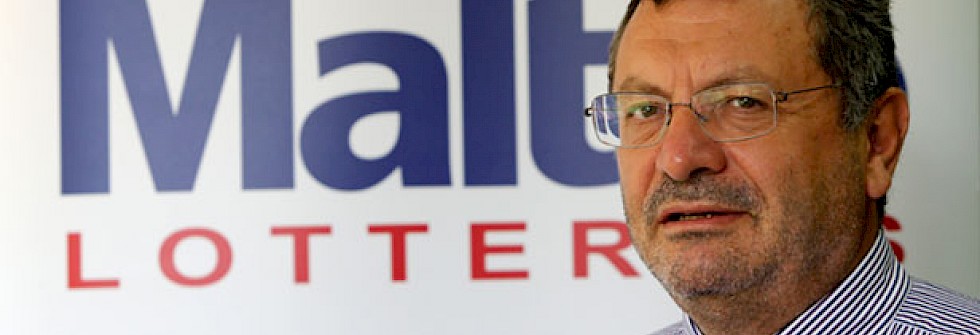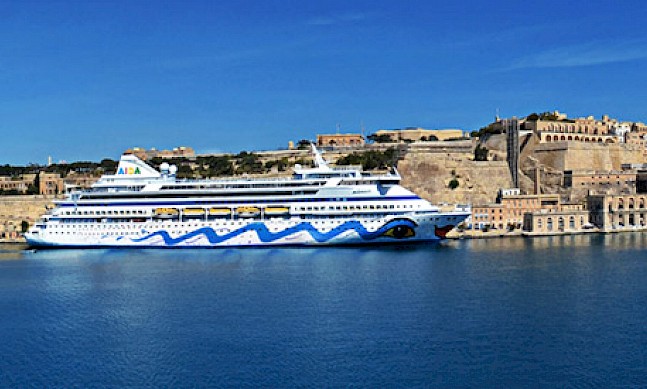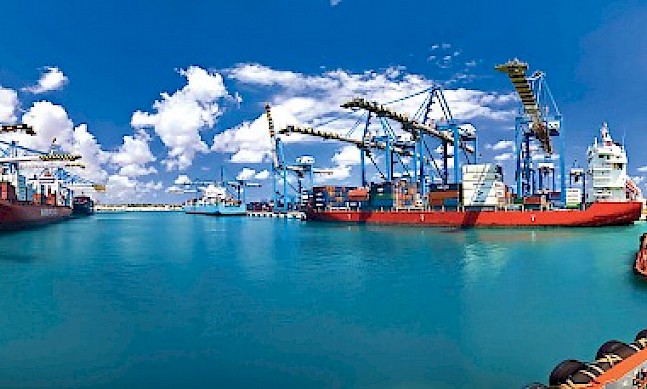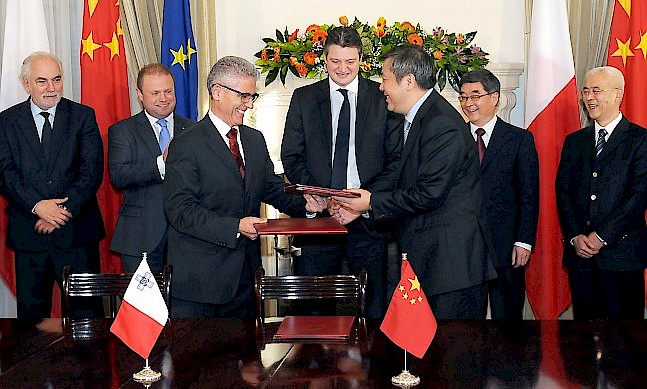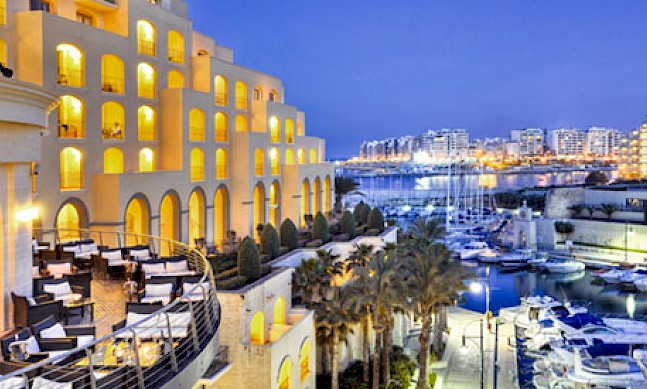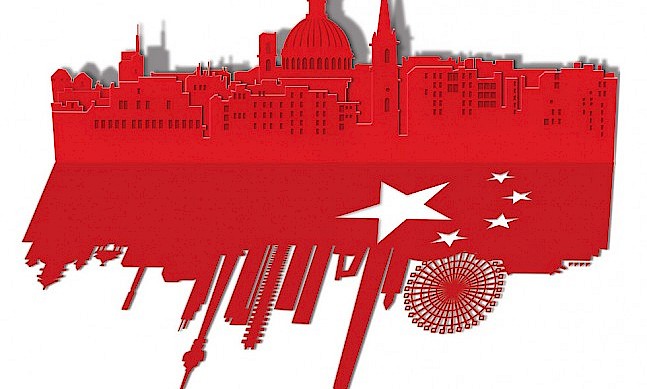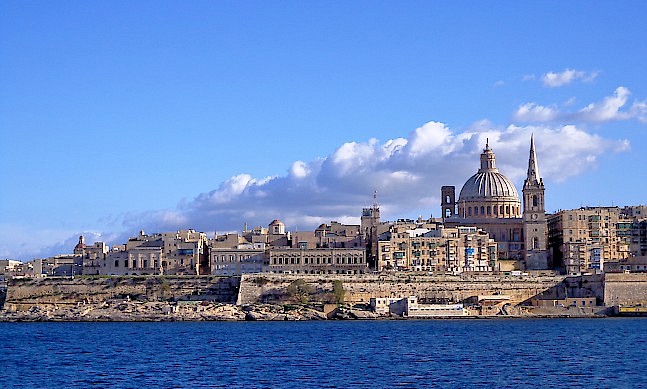Maltco operates all the national lottery and additional games in Malta, including horseracing and bingo. It was set up in 2004 by the majority shareholder, Intralot, a gaming company with a presence in 57 jurisdictions, more than 5,700 employees and revenues of €1.54 billion. Ioannis Katakis, CEO of Maltco, spoke to The Report Company about the gaming industry in Malta and what the island means for Intralot.
The Report Company: What is the history of Maltco in Malta?
Ioannis Katakis: Maltco in 2004 started the operation of the terrestrial lottery business in Malta after winning, through an international tender, the license for seven plus one years. Our operations started in July 2004 and by that time it was a big boom for Malta, because everything was offline. There were only two games plus the scratch cards and everything was slow and not very dynamic. When we started we invested heavily. At that time we paid to the government for the license roughly €19 million and at that time we invested €4-5 million in equipment and software in order to modernise the lottery. It was a big challenge for us because as Intralot it was for the first time that we had the opportunity to operate a privatised lottery.
TRC: How did the gaming sector develop once Maltco took over the operation of the lottery?
IK: The Maltese lottery was the first lottery globally that a government decided to privatise. What they did was assign the rights to an operator. The games had been agreed through the tender process. The big change for the Maltese was first of all that suddenly they saw a very wide spectrum of opportunities to play the game. Everything was more modern, it was online and interactive and suddenly even the games that they had for long time now had new features and were much more attractive.
We introduced sports betting and then in 2007 we introduced horseracing. Within three years Malta went from being a small country with a very out-dated lottery business to one of the more sophisticated lottery environments in the world.
TRC: What has been the international reception of Maltco’s work in Malta?
IK: We have had a lot of potential clients coming here that are trying to see the business, how we organise the shops and how we operate the games. We have had a lot of people coming from China to see how we operate and to get ideas. Suddenly, Malta became a global reference for the modern lottery business.
TRC: What is on offer for customers?
IK: Players now come across games that they never imagined before. The sports betting was very successful here, but also horseracing was a unique first of its kind thing at that time. We managed to have horseraces directly transmitted from Sweden and the UK. The races were transmitted live in each and every shop so people could go and watch them.
“The Maltese lottery was the first lottery globally that a government decided to privatise.”Post This
TRC: How would you appraise Maltco’s performance?
IK: In the first period of 2004-2012 the turnover of the business more than doubled. When we came the business was roughly €42 million; now it’s more than €80 million. The opportunities for the players were huge, and what we achieved was to attract a lot of players to the legal gaming market from the illegal market without any enforcement of law. What happened was that because we offered the opportunity to players to play in a very competitive environment they left the uncertainty of illegal gaming and they migrated to legal gaming.
A player can bet until five minutes before the game starts. Once the results have been confirmed and set in the system, he can go to the shop and get his money. He cannot get this from the illegal games and he cannot get this from the online games.
In 2012 there was a new tender and we won it again for a further ten years. We replaced all the equipment and put in central systems. The focus of the new infrastructure was to make the environment of the lottery business here in Malta something which offers entertainment and value for money for the player, not just in terms of winning but also in terms of the information and return that he gets due to the participation in the game.
We have established a TV system that broadcasts through our system live to all the shops so all the shops have the same type of information. This secures the credibility of the players. The player knows that no matter which shop he visits, he will get the same type of information. The online concept has been implemented from our point of view not through internet but through the network that we have to each and every shop.
I believe now Malta has become one of the pioneer lotteries in the world. Our shop is like a supermarket offering all the different types of games. The only thing that we do not offer is slot machines.
“I believe now Malta has become one of the pioneer lotteries in the world. Our shop is like a supermarket offering all the different types of games.”Post This
TRC: For Intralot, what does Malta represent?
IK: Malta is important as a reference for the world. None of the big countries have the concept that exists here in terms of the one-stop lottery shop. This is because of the license that we have here. This was very important for us because it gives us the opportunity to develop systems and services. When the player enters the shop he wants to get the most out of the experience. The more you offer, the more the player will play and enjoy himself.
For us Malta is a test case to develop systems and services. Here in Malta we have an environment where we can test the most sophisticated services that you can develop for the market. This is very important for us. Malta is also the best showroom to show to our potential clients what we can do and what we can offer. They can come here and see the reality in the real life of how things work. I feel very lucky to be here to enjoy this experience.
TRC: How does Maltco promote responsible gaming?
IK: Maltco is a part of the Intralot group and Intralot has a relationship with the two major lottery bodies, the European Lotteries Association and the World Lottery Association. It was our main aim halfway through the first license to have Maltco as a member of these two entities. This of course gives a lot of exposure to Malta and means it is present in all the decision-making aspects of the European Lotteries Association.
By being a member, you have to follow certain rules and one of the major things was the issue of responsible gaming. We tried to participate in the actions which were initiated by these two bodies and we recently became certified for responsible gaming. As a result, Malta now has a lottery which is certified by the European Lotteries Association and soon by the WLA for being responsible.
Everyone can enter our shops to play, so we are close to society and we have to be more sensitive as to how the society reacts to gaming. It is important for us to make people feel that by coming to our shops and playing they aren’t at risk of becoming problem gamblers.
We have more than 240 shops, and we get probably half of the population of Malta coming to our shops. If we give the opportunity to people to become gamblers and establish gambling problems, the first people that will be affected will be us. It’s about sustainability and for us this is important.
If you have a ten-year license, you have to keep the business successful for the next ten years and you prevent any problems from developing at any stage.
“Malta is important as a reference for the world. None of the big countries have the concept that exists here in terms of the one-stop lottery shop. This is because of the license that we have here.”Post This
TRC: What can Maltco do to educate people about responsible gaming?
IK: As part of the responsible gaming concept that we try to implement, we sent a lot of information to bodies and entities that could help us to take action and be aware of the problem of irresponsible gaming. We sent 500 letters to government bodies, athletic associations and so on, with instructions and questionnaires for people to assess themselves and references of how to react in case somebody becomes a problem gambler.
This action was very well received by all the NGOs that we have here. It was a good initiative for Malta because we made the society here in Malta aware about the issue of responsible gaming. Now I believe that it is the turn of the government to continue this initiative.
We also contribute to the government about €50,000 every year for actions related to responsible gaming and this is apart from what we spent to get the license.
The second thing that we did was an initiative to educate people about match fixing. We invited the various bodies from the Malta Football Association to the referees, the LGA and the government and they sat around the table to discuss and consider the issues.
These two aspects showed the significant role that Maltco plays in this country not only as an operator but in affecting and influencing social issues which are related to the wellbeing of the country.
TRC: What are the objectives that you aim to accomplish during the remainder of the license?
IK: For us it is important to keep the same pace. We’re adjusting the way we offer entertainment and service to the players in the years to come. This is very challenging because technology is changing, players are changing, so we have to be competitive and listen to what they want.
I want to continue Maltco’s leading role in fulfilling its obligations as a social company with initiatives such as those we have done in the past around responsible gaming and match fixing. It’s a way for us to expose Malta as a country with strong values. This is something which I think is very important and we have managed to do it over the last ten years. We have never had any accusations that our games were not credible. In our business if you lose credibility it is very difficult to get it back.
